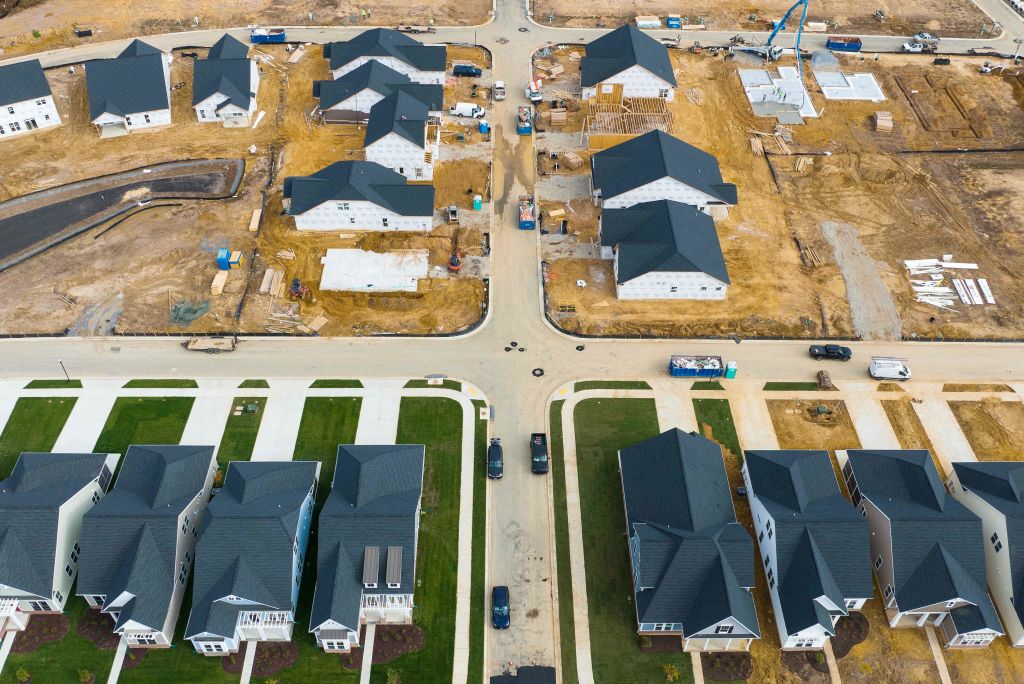TikTok Takes on Recession: Viral "Silent Depression" Claim Shakes Up Economic Experts
Some social media users claim that although the U.S. economy has stayed amazingly robust, affordability is at an all-time low, even when compared to the Great Depression.

(Photo : by BRENDAN SMIALOWSKI/AFP via Getty Images)
Some social media users claim that although the U.S. economy has stayed amazingly robust, affordability is at an all-time low, even when compared to the Great Depression.
The "silent depression," a recent TikTok craze, seeks to explain why essential costs like housing, transportation, and food are taking up a larger portion of the average American's take-home income. Some TikTokers claim that compared to the worst economic time in our nation's history, it is now tougher to make ends meet. Yet economists are diametrically opposed.
"Life expectancies are much longer, lives are much better, there are much more opportunities to realize one's potential, human rights are more widely respected, and access to information and education is widely expanded today" compared to a century ago, according to House.
Despite previous recessionary expectations, the country has continued to grow after the COVID-19 outbreak, even when only examining the data.
Recessions are officially defined as "a significant decline in economic activity that is spread across the economy and lasts more than a few months" by the National Bureau of Economic Research. Over a dozen recessions have occurred in the past century, with some lasting up to a year and a half.
The only slump the United States has ever had during the industrial era lasted ten years, from the 1929 stock market crash to 1939, when the country started preparing for World War II.
"Totally different order of magnitude" describes a depression, according to Susan Houseman, research director at the W.E. "It's the first we've seen in 80 or 90 years."
In actuality, the most recent quarterly GDP report, which monitors the state of the economy overall, rose more than anticipated, and the Federal Reserve has thus far been effective in reducing inflation, which is an uncommon accomplishment in the history of the economy.
In its most recent economic predictions, the central bank hinted that it will lower interest rates in 2024, even if the economy continues to expand. This is the desired course for a "soft landing," in which inflation returns to the Fed's objective of 2% without significantly raising unemployment.
Read Also: CEOs Urge Lawmakers: Pump the Brakes on Regulations, Risk Economic Fallout
Economic Disparities and Housing Impact on Public Perception
In November, the U.S. unemployment rate dropped to 3.7%. The Department of Labor's most recent data indicates that, compared to the 25% unemployment rate in the 1930s, there are currently 1.3 opportunities for every available worker.
But regardless of the nation's economic situation, a lot of Americans are having difficulty paying for necessities due to exorbitant pricing, and the majority have depleted their savings and are now depending on credit cards to get by.
Tomas Philipson, a professor of public policy studies at the University of Chicago and a former acting head of the White House Council of Economic Advisers, stated that lower-income households have been disproportionately affected.
The lowest-paid employees devote a larger portion of their earnings on essentials like petrol, rent, and groceries-categories that have also seen above-average increases in inflation.
Regardless of what other evidence indicates, housing in particular has had a significant impact on the perception of many Americans about the general state of the country.
According to the S&P CoreLogic Case-Shiller Index, house prices have increased 6.1% nationwide year to date, which is much more than the typical full calendar year gain during the previous 35 years. Although they have decreased, mortgage rates are still more than 7%, and the number of available properties is still extremely low.
That explains, according to House, why even when the nation is doing well, Americans nevertheless feel very lousy about their own financial situation. "Since most people's lifetime investment is homeownership, the real estate market is probably dampening many Americans' feelings about the U.S. economy."
Related Article: Holiday Season Could Leave Luxury Retailers Drowning in Unsold Inventory












